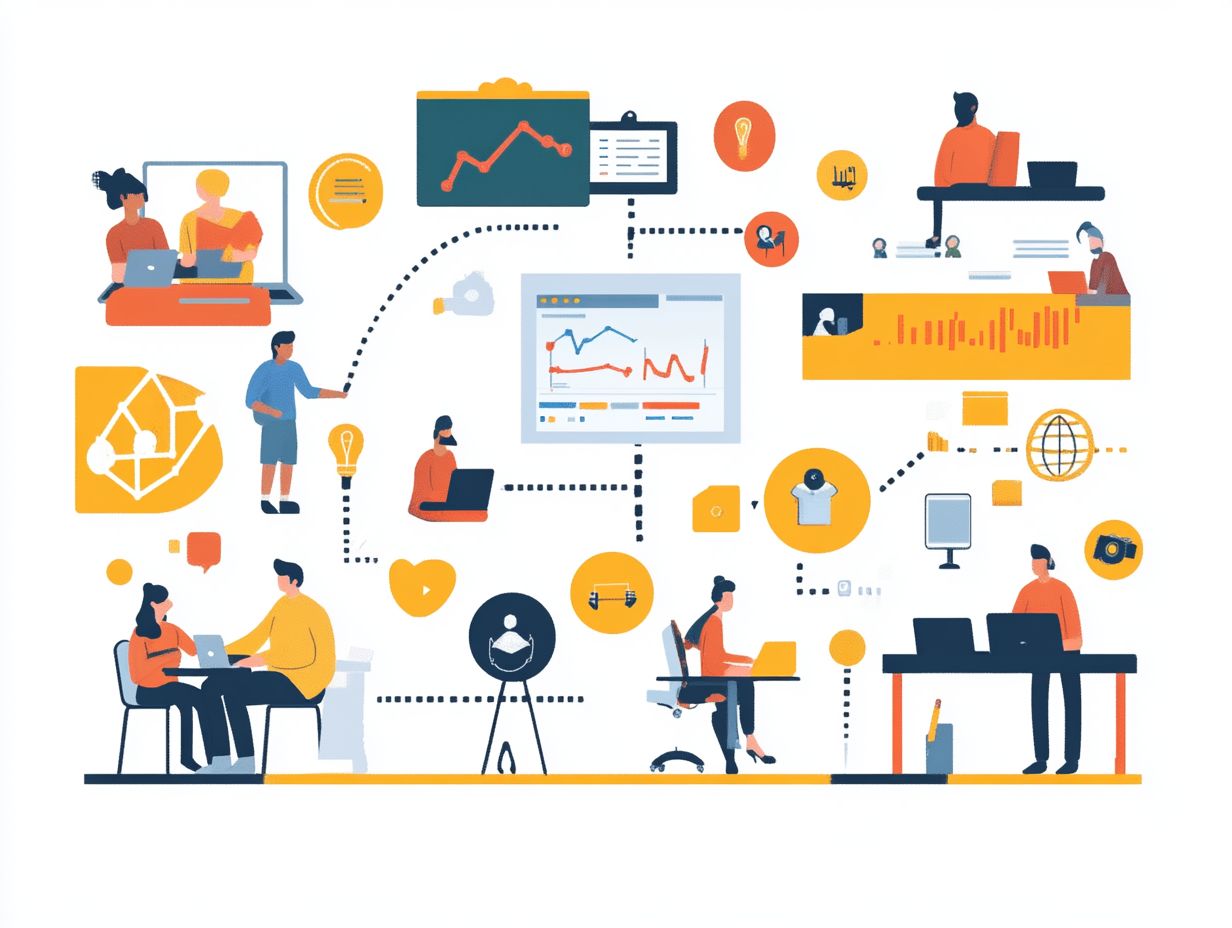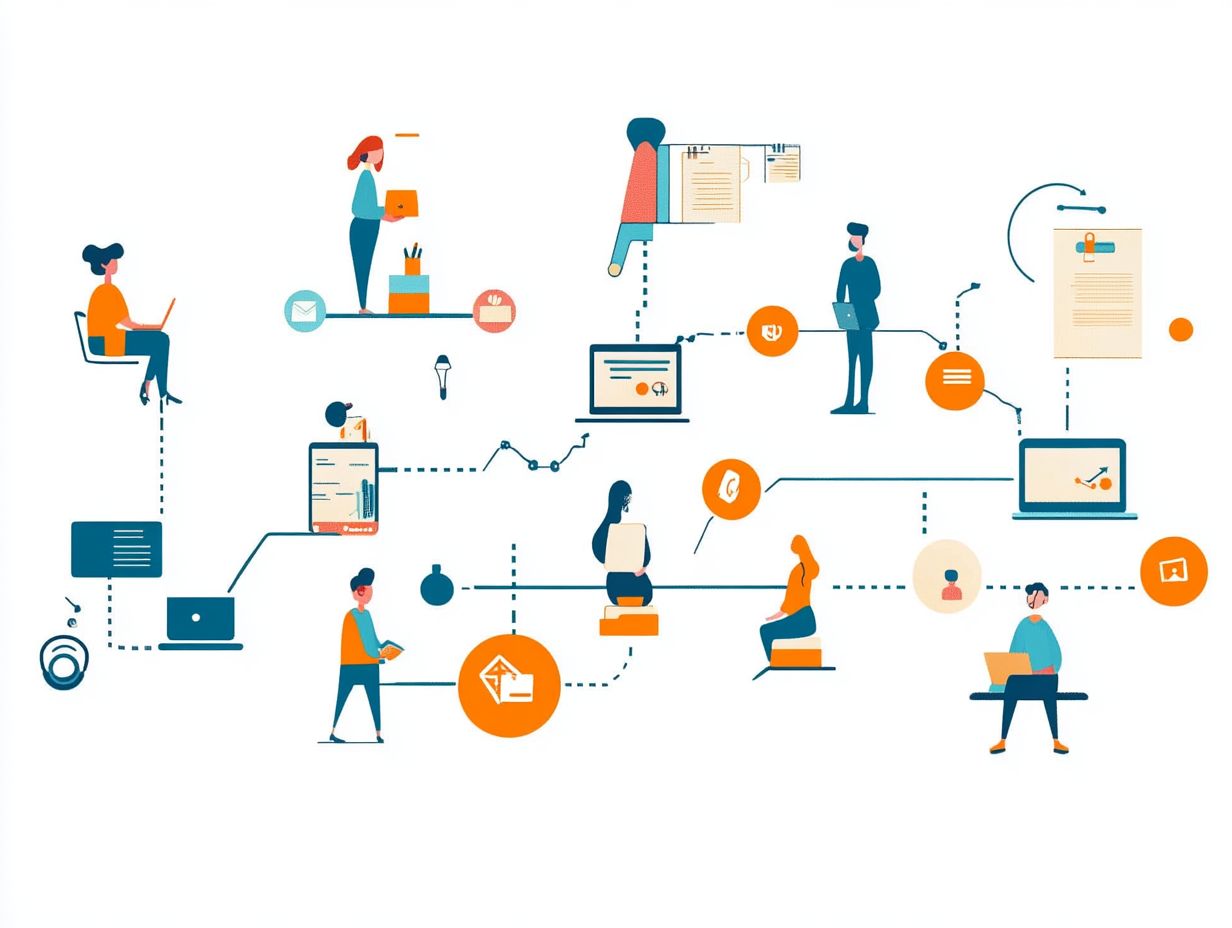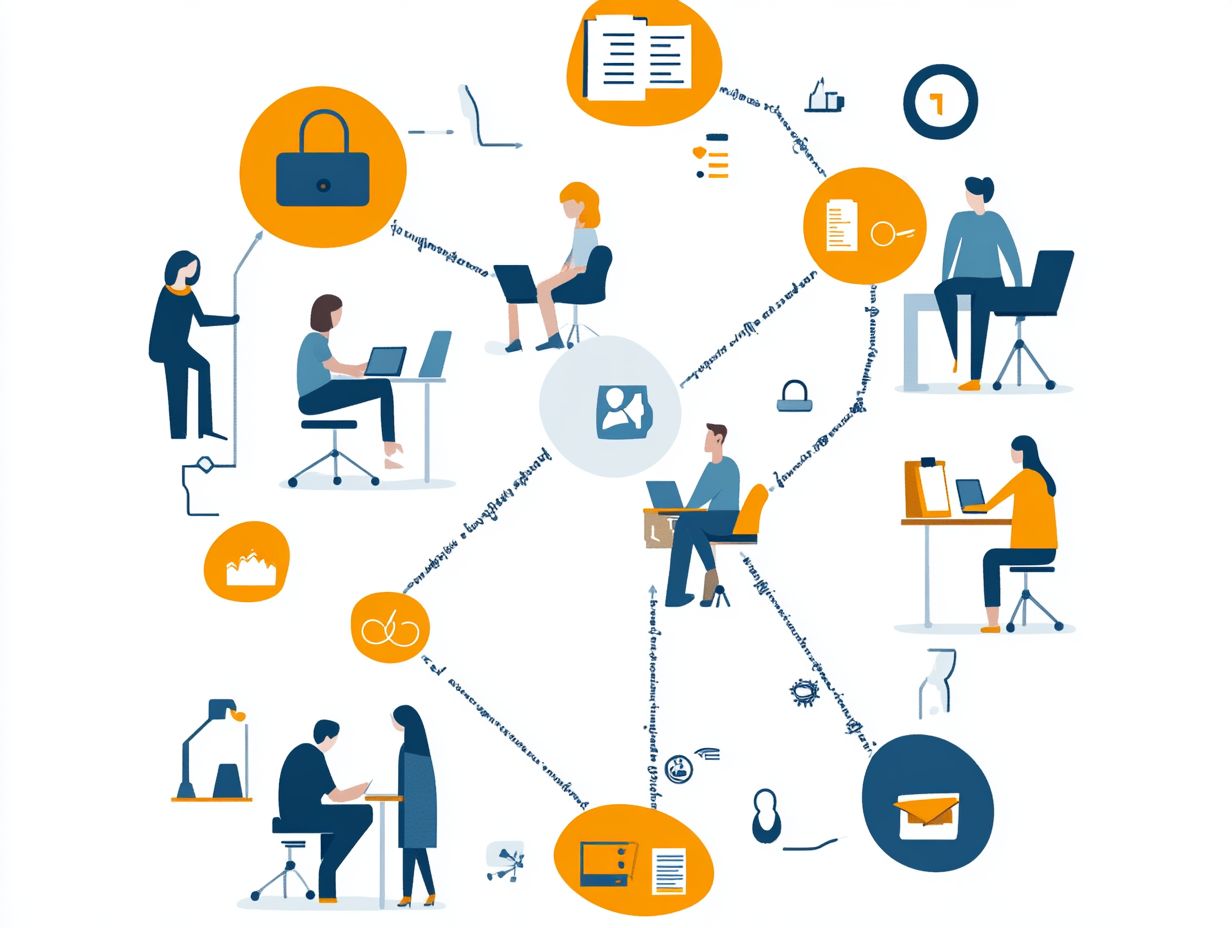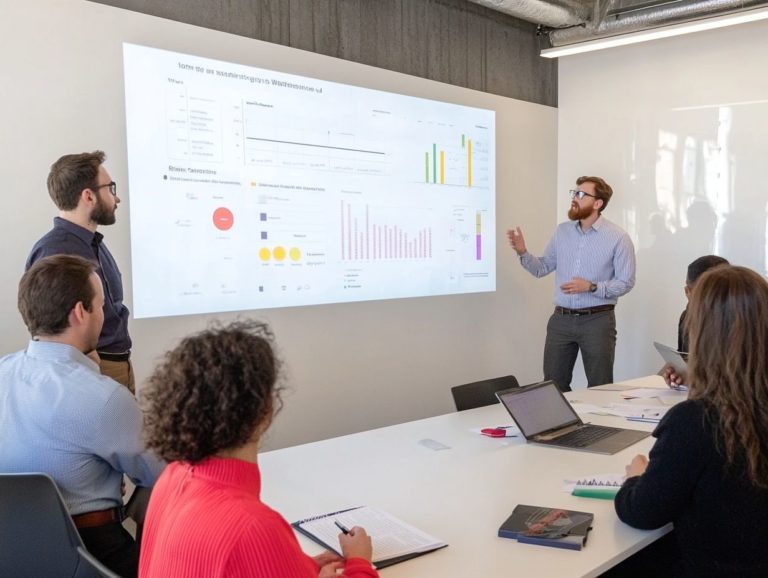The Evolution of Skill Enhancement Programs
In today’s fast-paced world, the necessity for continuous growth and development has reached new heights. Skill enhancement programs have evolved remarkably, tailoring themselves to meet the shifting demands of the workforce and your personal aspirations.
This article takes you through the historical journey of these programs, tracing their origins to the diverse offerings available today. You’ll discover various types, such as workshops and online courses, while we highlight their benefits and effectiveness.
We will now examine the innovative trends that are reshaping the industry. Join us as we uncover the crucial role these programs play in your personal and professional success.
Contents
- Key Takeaways:
- The Importance of Skill Enhancement Programs
- Historical Overview of Skill Enhancement Programs
- Types of Skill Enhancement Programs
- Benefits of Skill Enhancement Programs
- Evaluating the Effectiveness of Skill Enhancement Programs
- Future of Skill Enhancement Programs
- Frequently Asked Questions
- What are skill enhancement programs?
- How have skill enhancement programs evolved over time?
- What are the benefits of skill enhancement programs?
- What types of skills can be enhanced through these programs?
- How do skill enhancement programs cater to different learning styles?
- Are there any industry-specific skill enhancement programs?
Key Takeaways:

- Continual growth and development are essential for success, making skill enhancement programs essential in today’s fast-paced world.
- From early forms of training to modern programs like workshops and online courses, skill enhancement programs have evolved to meet changing needs and advancements in technology.
- Skill enhancement programs offer both professional and personal benefits, making them a valuable investment in your personal and career growth.
The Importance of Skill Enhancement Programs
Skill enhancement programs are crucial for cultivating a culture of continuous learning and skills development within your organization. They meet the changing job market’s needs and help you grow professionally.
By aligning with organizational goals, these programs enhance employee engagement and contribute to effective workforce development. In this era of digital transformation, they are not just optional; they are essential for maintaining a competitive edge and fostering innovation.
Understanding the Need for Constant Growth and Development
The modern workforce presents an ongoing demand for your growth and development, propelled by rapid technological advancements and a competitive job market.
In this dynamic landscape, cultivating a growth mindset becomes essential, enabling you to adapt and thrive amid constant change. It’s crucial to recognize that success hinges not only on technical skills but also on soft skills like communication and teamwork, which can significantly elevate your career trajectory.
Engaging in professional development strategies, such as mentorship programs and coaching opportunities, can offer invaluable insights and create a supportive network around you. By actively seeking out these learning avenues, you position yourself to seize new opportunities and navigate challenges with confidence.
Historical Overview of Skill Enhancement Programs
The historical overview of skill enhancement programs illustrates a remarkable evolution. You can see a shift from conventional training methods to contemporary, adaptive learning technologies that align with the dynamic needs of workforce development in this era of digital transformation, highlighting the future of skill enhancement programs.
Early Forms of Training and Education
Early forms of training and education were rooted in apprenticeship models and basic classroom instruction, laying the groundwork for today s skill enhancement programs.
These methods skillfully blended hands-on experience with theoretical knowledge, playing a crucial role in developing specialized skill sets for individuals entering various trades. By nurturing a close-knit relationship between mentor and apprentice, this dual approach provided tailored instruction that effectively met the specific needs of the industry.
The focus on experiential learning not only readied workers for immediate job demands but also instilled a sense of discipline and commitment, which continues to shape workforce culture.
As time moved forward, these foundational techniques evolved, paving the way for modern training programs that now leverage technology and innovative teaching methods to support lifelong learning and adaptability in an ever-changing job market.
Start your journey of growth today by exploring skill enhancement programs!
Shift towards Modern Skill Enhancement Programs

The shift toward modern skill enhancement programs is characterized by the integration of learning tools that adjust to how you learn and a keen focus on digital transformation. These changes are all aimed at boosting training effectiveness.
This evolution highlights the increasing recognition of continuous learning’s importance. Rapid technological advancements and changing workforce demands reshape the landscape. In today’s fast-paced digital world, organizations understand that employees must not only acquire new skills but also adapt seamlessly to evolving job responsibilities.
These innovative programs harness interactive platforms like mobile applications and online simulations. These tools enhance knowledge retention and elevate employee engagement to new heights. By embracing data analytics, companies can tailor learning experiences, ensuring that training remains relevant and effective.
This approach quickly shapes a workforce that’s not only skilled but also ready to excel!
Types of Skill Enhancement Programs
Skill enhancement programs are available in various formats, such as workshops, seminars, online courses, and certifications. Each option is crafted to promote experiential learning and encourage team collaboration.
Workshops and Seminars
Workshops and seminars offer an engaging platform for experiential learning. They provide invaluable coaching opportunities while fostering collaboration among team members.
These formats encourage your active participation. You can apply theoretical concepts to real-world scenarios. Engaging in group discussions, hands-on activities, and problem-solving exercises helps you hone critical thinking skills vital in today s fast-paced environments.
Workshops and seminars also create networking opportunities that enable you to connect with industry professionals and peers who share your ambitions. This collaborative atmosphere promotes your personal growth and facilitates the exchange of diverse insights and experiences. Ultimately, this leads to a comprehensive enhancement of your skills.
Online Courses and Certifications
Online courses and certifications have transformed the way you enhance your skills. They leverage the capabilities of digital innovation and learning tools that adjust to how you learn to create personalized and flexible educational experiences.
This groundbreaking method accommodates your unique learning preferences. You can pursue education at your own pace, seamlessly integrating it into your busy schedule. With an extensive selection of courses available online, you can explore various subjects and access high-quality content from esteemed institutions around the globe.
The self-assessment tools embedded in these platforms allow you to monitor your progress. You can pinpoint your strengths and weaknesses and refine your study strategies accordingly. This blend of flexibility and tailored feedback is crucial for achieving mastery in today s fast-paced job market, supporting your continuous growth in skills and knowledge.
Benefits of Skill Enhancement Programs
Skill enhancement programs offer incredible benefits for you! They provide avenues for both professional growth and personal development. These programs play a pivotal role in boosting employee engagement and driving organizational success.
Investing in your skills boosts your abilities and helps your organization succeed!
Professional and Personal Advantages

Skill enhancement programs offer numerous professional benefits, including potential career advancement. They also nurture important personal attributes like emotional intelligence and resilience.
These programs play a crucial role in your overall growth and confidence. They enable you to navigate workplace dynamics more easily.
You’ll likely find that improved communication skills and a deeper understanding of team dynamics lead to better collaboration and productivity. Personal benefits, like heightened self-awareness and adaptability, enhance your overall well-being.
This development boosts your job performance and strengthens your relationships. Investing in skill enhancement pays off in many aspects of your life.
Evaluating the Effectiveness of Skill Enhancement Programs
Evaluating the effectiveness of skill enhancement programs is essential. This process involves analyzing performance measures, assessing training effectiveness, and employing feedback mechanisms for continuous improvement.
By following these steps, you can ensure that your programs meet and exceed expectations. This leads to sustained growth and development.
Measuring Impact and Success
Measuring the impact and success of skill enhancement programs requires analyzing performance data. This helps you assess how effective the training is.
Consider specific metrics that indicate improvement. These might include:
- Performance assessments
- Employee feedback
- Productivity rates
These metrics create a clearer picture of skill acquisition and retention. Monitoring key performance indicators (KPIs), like sales figures or project completion times, shows how effectively training translates into results.
By consistently collecting and analyzing this data, you can adjust your programs to align with employee development needs and broader business goals.
Future of Skill Enhancement Programs
The future of skill enhancement programs is transforming, influenced by trends in innovation and digital technology. To navigate these changes effectively, it’s crucial to consider understanding the challenges of skill enhancement. These advancements foster a vibrant learning culture that supports continuous growth.
Trends and Innovations in the Industry
Current trends in the skill enhancement industry are captivating. The rise of e-learning platforms and adaptive learning technologies makes learning more personalized and accessible.
With artificial intelligence, tailored learning paths are more feasible. You can receive real-time feedback and dynamic adjustments based on your performance.
Gamification techniques are also boosting engagement and motivation through interactive elements. Organizations are embracing these advancements to equip you with essential skills for a rapidly evolving job market.
Frequently Asked Questions

What are skill enhancement programs?
Skill enhancement programs help individuals improve their skills or learn new ones to increase their knowledge and abilities.
How have skill enhancement programs evolved over time?
These programs have changed from traditional classroom-based learning to a more diverse approach. They now incorporate online platforms, hands-on training, and individualized coaching.
What are the benefits of skill enhancement programs?
Unlock exciting job opportunities with skill enhancement programs! They can lead to higher salaries and boost your personal growth.
What types of skills can be enhanced through these programs?
These programs cover various skills, including technical abilities, people skills, and leadership qualities.
How do skill enhancement programs cater to different learning styles?
These programs offer diverse learning methods. You can choose from visual, auditory, kinesthetic, and hands-on experiences.
Are there any industry-specific skill enhancement programs?
Yes! Tailored programs exist for specific industries like healthcare, technology, and finance to meet unique demands.






